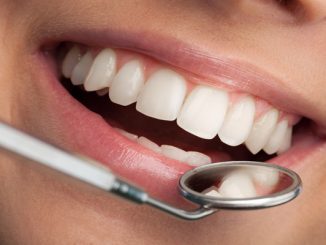

There is a never-ending list of hair loss products available in the market today; however, the question to ask is how many of them are actually effective? There is very little information given on the websites of such products and even the product literature does not provide sufficient and accurate information on the subject matter making it very difficult for the users to choose a product.
So then how do you decide whether a product will be effective or not? Alternatively, is it even worth buying? Some guiding points are mentioned below that will help you decide on the effectiveness of any hair re-growth product that is placed in the market.
Where is the evidence?
The medical world today is governed by various regulatory bodies, like the FDA in the US. These regulatory bodies provide approval for licensing of medications. The license is approved only once the product has been through a thorough clinical trial and is proven to be safe for usage and effective in what is proposes it does. The trail is done on hundreds and sometimes thousands of participants entailing several parameters.
Based on the results of the clinical trial, there regulatory bodies decide to either approve or reject the license of a particular product. Therefore, if a product has been licensed by the MHRA or the FDA, you can be sure that the product will be 100% effective as well as safe to use.
What to look out for?
If a product does not have a license, there is no way to prove that it does what it is supposed to do and neither can the manufacturers advertise or make claims of hair regrowth. Despite this, several manufacturers advertise for hair loss prevention and sell their products in the market. You must be careful of such frauds when you decide on buying a hair regrowth or hair loss product.
Given below are some well-known products along with their ingredients, and whether or not, they have been proven to promote hair regrowth. You must however use your discretion and research well on the product that you may choose to use so that you are well aware of and know exactly what to expect and how soon to expect the results.
Minoxidil
Minoxidil is an inactive and stable drug which when absorbed by the skin reacts with a catalyst called Sulfonyl Transferase (body-produced catalyst) and converts into an active, unstable product known as ‘Minoxidil Sulphite’. This then activates the potassium channels in the cells, which is thought to induce hair growth.
There are various other theories around which the working of this drug is based. It is believed by some experts that Minoxidil causes blood vessels to dilate around the hair follicles, which supposedly increases the nutrient supply promoting hair growth. This theory, however, is not proven medically since other vascular drugs do not seem to promote hair regrowth.
Another theory states that topical Minoxidil induces increased DNA synthesis in the hair follicle cells, thereby promoting hair growth. There is however, no conclusive evidence to prove how and why Minoxidil causes hair growth.
Propecia
Twenty years ago, this drug was approved by the name of Proscar for prevention of Benign Prostate Hyperplasia (BPH). One of its active ingredients is Finasteride, which when taken daily in a quantity not more than 5 mg by males aged 60 and above, would inhibit the formation of Dihydrotestosterone (DTH), a hormone that can cause prostate cancer and is also the cause of hair loss in men.
Propecia hair loss product, if taken, prevents the formation of DTH and over a few months, you can expect a control on your hair loss if not hair regrowth.











Leave a Reply
You must be logged in to post a comment.